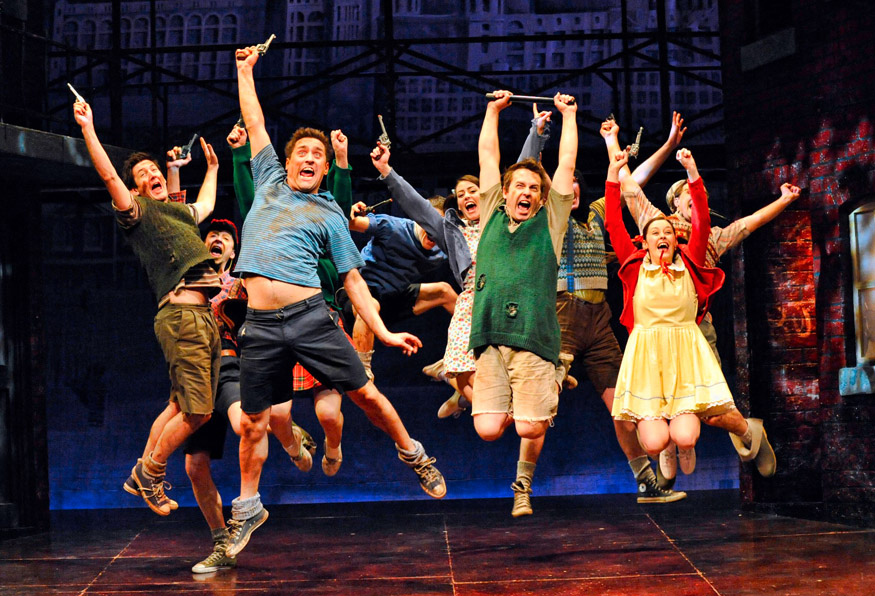
Willy Russell claims the idea for Blood Brothers came to him in the time between lifting his right foot and putting it down again while walking, but that the process of composing the music and the songs took him many years to develop. Maybe that explains my feelings at the end – that while this was inspired visceral storytelling, it was sometimes undermined by uncomfortably overworked, cliché-ridden song lyrics, accompanied by a sound track that had resonances of the East Enders theme.
A synopsis would read like a Shakespearean tragedy. Twin brothers are separated shortly after birth because their single mum, Mrs Johnstone, is struggling to provide for an already large family, and her employer, the wealthy Mrs Lyons, sees an opportunity to gain the baby she cannot have herself. A pact of secrecy is sworn between them. A narrator stalks both of them, reminding them and us, often, that these women have ‘sinned’ and that “the devil’s got your number, he’s never far behind you.” I’m sure many feminists would want to point out to Russell that loading blame on to these women, Mrs Johnstone at least, lies at odds with his desire to point out the inequities of growing up rich or poor in the UK.
Despite some of the greetings-card lyrics that threatened to sentimentalise the proceedings, there were strong performances from Lyn Paul, a seasoned performer of the Mrs Johnstone role, Danielle Corlass as the feisty girlfriend Linda and, in particular, Sean Jones as the struggling Mickey. Jones put sparks in the shoes of the juvenile Mickey, later exploring his issues of depression and desperation with real gravitas. Lyn Paul has been singing the role of Mrs Johnstone for 20 years. In a role she has made her own, tonight she was always in command of her range. Mark Hutchinson, another ‘old hand’ in the Blood Brothers line up, plays the more fortunate twin, Eddie. His middle-class limpid interpretation presented a good foil for the more volatile twin Mickey, especially as a short-trousered public school boy.
It was during the growing-up scenes that Russell’s keen observations of behaviour were at their most acute. In these the rest of the cast played key roles, especially during a disastrous bus journey and in an anarchic classroom. Graham Martin stood out as a frustrated teacher and no-nonsense policeman.
Andy Walmsley’s backdrop of the Liverpudlian skyline, complete with twinkly lights in the windows of the Royal Liver Building was a treat, as was his terraced house street scene depicting Skelmersdale Lane. Direction by Bob Tomson and Bill Kenwright ensured the action remained fluid and fast, although the rather plodding nature of the role of the narrator sometimes felt at odds with the more natural action of general story as it played out – no fault of Dean Chisnall’s, who was big of voice and stature in the role.
I had a mixed reaction, then, to this highly successful piece by Russell. Its themes of class and inequality still pack resonance, but the application of song, accompanied by a loud pre-recorded backing track, has the effect of pushing this sad tale, at times, towards melodrama. ★★★☆☆ Simon Bishop 12th April 2017
* Picture from previous productions

